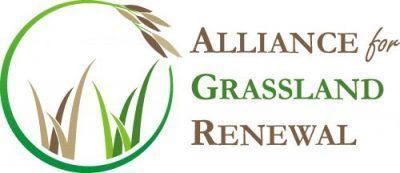Pasture Plant Diversity Field Day and Workshop at Beaver Creek Farm, NC was a big success!
Over 100 farmers, conservationists, extension agents and others gathered at Beaver Creek Farm in Surry County, NC on July 25 to explore the topic of plant diversity as it relates to the productivity and management of pastures. The event was presented by the NC Forage and Grassland Council and the Amazing Grazing Program. Most research would suggest that monocultures or bicultures are usually higher yielding than diverse mixtures, but there is still interest in diversity because of potential advantages with rooting architecture, nourishment of the soil biology, and secondary plant compounds. There is much to learn about these harder to define benefits, but in the meantime many farmers prefer to plant complex mixtures of either annuals or perennials. This workshop was designed to explore and observe the benefits of diversity on a very “pasture plant species rich” farm.
Mike and Jean Jones, owners of Beaver Creek Farm, have been expanding the diversity of plantings on their Surry County farm for over 20 years. They have great examples of native warm season grasses, novel endophyte tall fescue, and complex mixtures including KY31 tall fescue, orchardgrass, plus red and white clover. Recently the Jones planted a Savanah pasture with scattered trees and a wide variety of native warm and cool season native forages. Examples include big bluestem, eastern gammagrass, and Virginia wild rye. There is also a central area that was seeded with over 20 native wildflowers as pollinator habitat.

The Jones also planted a complex cool season perennial mix last autumn which included novel endophyte tall fescue, orchardgrass, prairie bromegrass, bluegrass, timothy, red clover, white clover, birdsfoot trefoil, chicory, and buckhorn plantain. It was a terrible autumn for establishment last year, so we are still evaluating the success of that planting.
It was a hot day, but we had fun traveling around the farm on covered wagons pulled by antique tractors. We visited the various plantings and heard words of wisdom from a variety of speakers. Dr. Deidre Harmon told the crowd how to use the point-step technique to determine the botanical composition of a pasture and how to plan management decisions based on the outcome. Dr. Matt Poore discussed the potential benefits of novel endophyte tall fescue both in pure plantings and in complex mixtures.
Dr. Alan Franzluebbers talked about the concept of soil health and how the measurement of soil respiration or “Soil Test Biological Activity” provides a simple method for assessing soil health. Dr. Pat Keyser spoke in a very diverse native warm season grass pasture about the potential benefits native warm seasons can bring to a forage system in our region.
As we entered the Savanah Ecosystem, Dr. John Fike from Virginia Tech discussed the concept of pasture diversity and species richness of ecosystems. Jason Smith from the NC Wildlife Commission told the history of the Savanah Ecosystem project including details of the establishment process. He also explained the benefits of this ecosystem as wildlife habitat.

After the farm tour the crowd gathered under a giant tent for a lunch of local beef burgers and a chance to enjoy the shade and discuss issues important to farmers in the region. We had a chance to study a collection of over 50 different pasture plants and to see how dung beetles break down cow pies. Johnny Rogers from the Amazing Grazing Program at NC State discussed how conscious adaptive grazing management can help build soil health and improve water infiltration in pastures. Keith Larick from the NC Farm Bureau talked about carbon credit programs and their possible benefits to the farming community. Finally, Bryan Blinson tied all we had learned together in the context of the wide diversity of farm types and environments across the state.
As it turned out this workshop was a big success, and we had great feedback from the crowd. Instead of providing handouts we distributed a list of resources available on the web either directly or indirectly related to the field day topics. If you would like to learn more about any of the topics discussed click or scan the QR code to go to the online resource page.
~ Matt Poore, NC State and Alliance for Grassland Renewal Chair
The Alliance for Grassland Renewal is a national organization focused on enhancing the appropriate adoption of novel endophyte tall fescue technology through education, incentives, self-regulation and promotion. For more resources or to learn more about the Alliance for Grassland Renewal, go to www.grasslandrenewal.org

